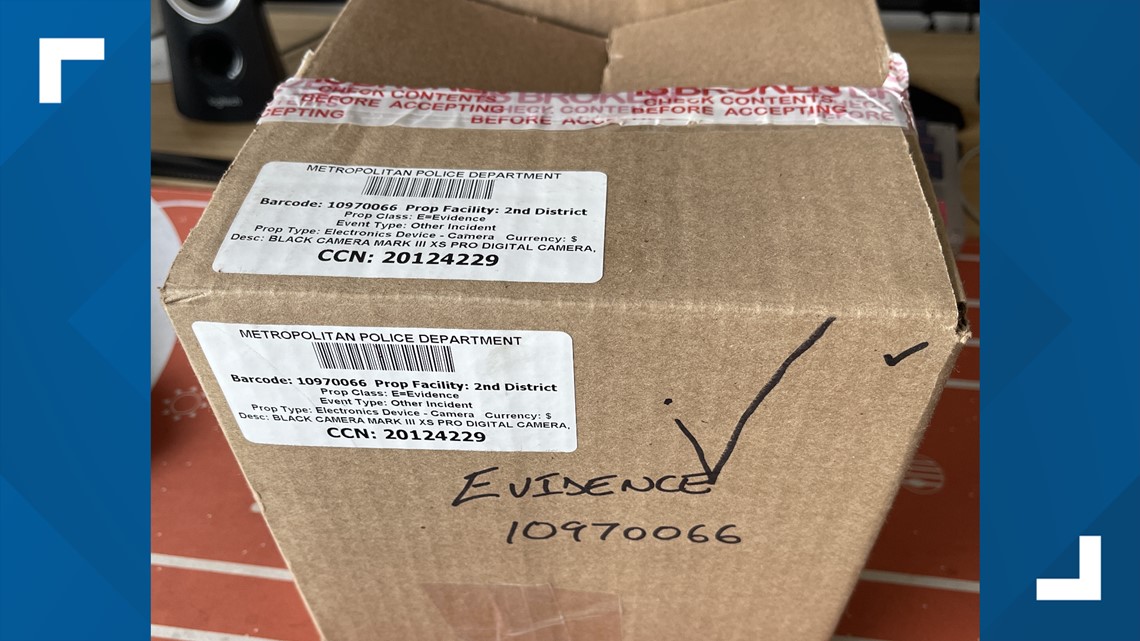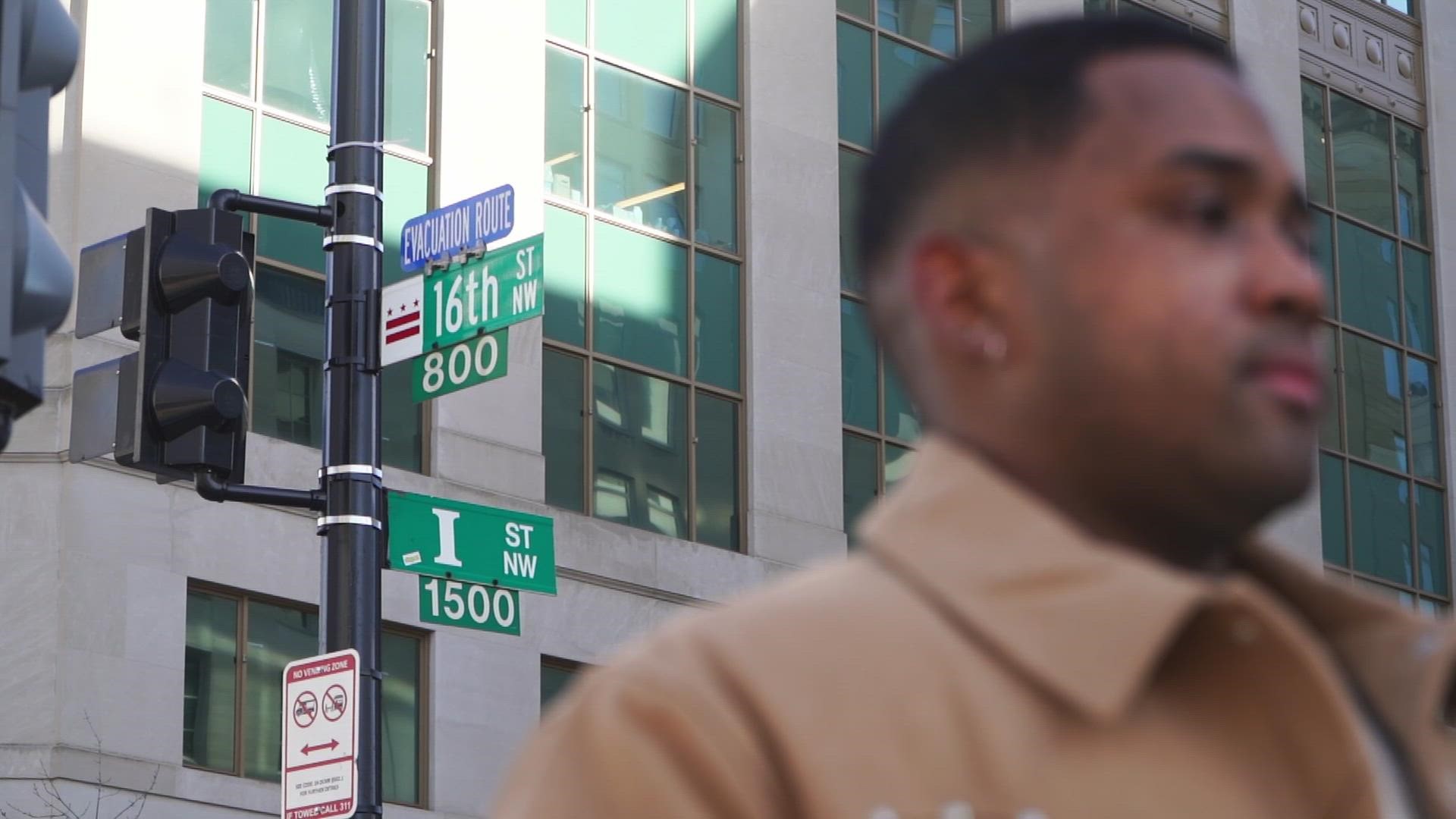WASHINGTON — Oyoma Acinor had not stepped foot in Black Lives Matter Plaza since Aug. 28 2020. He’d been avoiding the landmark that became the epicenter of racial justice protests in D.C. that summer, as it only brought memories of the night he was arrested by DC Police.
But that changed in January.
"One of the things I remember instantly being back here is the sound of the boots from the officers behind us," Acinor said, of the night he was arrested for a curfew violation. "And given no visual or audio warning about any kind of kettle that's approaching."
Acinor captured his memories of that night through photos on his phone and camera, both of which were taken by police during his arrest.
"They take all of your personal effects," Acinor said. "So for me that's earrings, jewelry, bracelet, anything on you, even shoelaces ... my camera gear, also my phone."
ACLU DC Attorney Micahel Perloff worked with Acinor for nearly a year to get his personal items back.
"The police seem to believe that if they arrest you, they can take your stuff, your cell phones, which often have your pictures, your messages, the most intimate details of your life, and just hold on to it," Perloff said.
DC prosecutors did not file any charges against Acinor, nor the vast majority of protesters arrested during Black Lives Matter protests in D.C. that summer.


MPD shipped Acinor his camera and phone back 12 months after his arrest, but when Acinor remotely wiped his phone while it was in police custody, he lost memories that weren’t backed up: photographs from trips, conversations with old friends.
"If the police take your phone, you should get a prompt hearing or you can ask for it back," Perloff said. "That's what the Constitution requires. But it's not what happens here in D.C."
While Acinor got his phone back, the ACLU filed a class action lawsuit on behalf of two protesters and three volunteer medics who say MPD confiscated their phones and never gave them back.
One of those medics, Jake Oster, said he believes MPD seizes cell phones during an arrest as a tactic to "sever lines of communication."
"One of the best ways to do that is to seize phones and hold that as evidence, because it is a deterrent for us to get back out on the front lines the next day," Oster said.
MPD declined to comment on the lawsuit, instead sending WUSA9 a copy of a 30-year-old policy that doesn’t mention anything about holding on to personal devices.
Acinor avoided BLM Plaza for so long because of the memories of his arrest. But now, reunited with his belongings, he feels reunited with his sense of place.
"Especially having Black lineage, Acinor said, describing himself as half-Black, "Being out here ... not only means being documenting the movement of what's happening, but documenting my own history."

